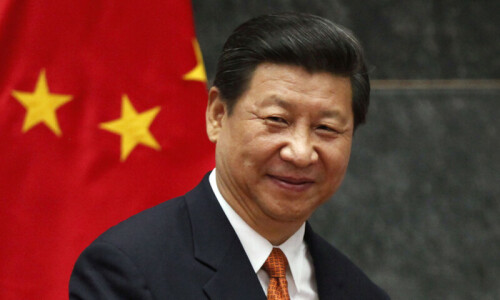SRINAGAR: Tens of thousands of government forces in riot gear patrol India-held Kashmir. Streets lined with shuttered shops are deserted, steel barricades and razor wire cutting off neighbourhoods. An eerie silence is broken by an occasional security vehicle whizzing past or the cawing of crows.
An unprecedented security lockdown amid a near-total communications blackout entered a fourth day on Thursday, forcing some news organisations to hand-carry dispatches out of the region.
The lives of millions have been upended since the latest and most serious crackdown followed a decision by New Delhi to revoke the special status of Jammu and Kashmir and downgrade the Himalayan region from statehood to a territory.
At the Shri Maharaja Hari Singh hospital in Srinagar, doctors said that at least 50 people had come in with wounds from pellet guns and rubber bullets, the ammunition security forces often use to disperse protests.Kashmir’s fury at Indian rule is nothing new. Its roots lie in a broken promise of a UN-administered referendum guaranteed shortly after India and Pakistan gained independence from Britain in 1947.
In central Srinagar, the region’s main city, few pedestrians ventured out of their homes to navigate barbed-wire checkpoints guarded by helmeted soldiers in camouflage, wielding rifles and protective shields.
Shopping malls, grocery stores and even clinics were closed. In previous security clampdowns, neighbourhood bodegas had opened their doors for a few hours a day after dark so that people could buy basic necessities like milk, grains and baby food. It is not clear whether the stores have opened in the current crackdown. Residents are used to stockpiling essentials, a practice they’ve honed during harsh winter months when roads and communications lines are often snapped.
The communication blackout with landlines, cellphones and internet all down means that people within Kashmir can’t call one another or speak to friends and relatives outside the region, relying only on limited cable TV and local radio reports.
Razir Mir, 32, described hearing a loud bang on Monday and opening his front door to find his wife, Rabiya, “face down on the street. Blood was pouring from her eyes,” he said.
Published in Dawn, August 9th, 2019
















































